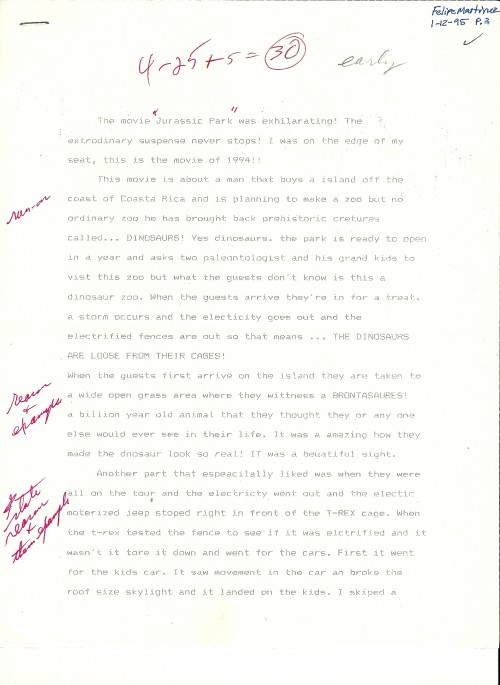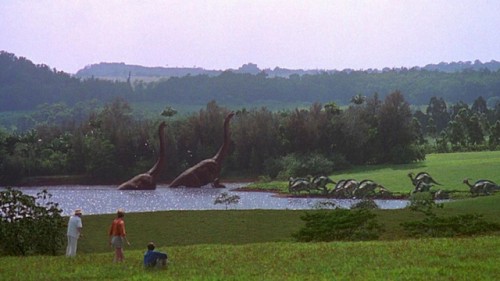(Canadian) Sunday Service: Jon Paul Fiorentino poem
NOTE: Canadian poetry! For no particular reason, I will be taking over Melissa Broder’s column for the month of the October to spotlight poems by contemporary Canadian writers. Today’s poet is Jon Paul Fiorentino, whose latest (and also, I feel, career-best) collection, Needs Improvement, was just published by Coach House.
It still means fuck all to me
Write of the solitary fence post
of the day you heard the incantatory wisdom of birds of Alberta
and how the peculiar birdsong of the tundra swan once set your
spirit free
Write of the struggles of your fathers
of the linguistic imperatives that shackle you and keep you from
articulating the particularities of non-heteronormative and
alternative identities
Write of the land and how it’s shaped you
of the small things like the footsteps you hear when you wish
to hear nothing and the incomprehensible strangeness of being
and exactly what you have gleaned
Write of the day that you lost her
of the day that you lost him and everything collapsed into
emblems and metaphors and similes and other tropes blending
into the cruellest and sharpest unit of metonomy
Write of the city that you left there
of the Winnipeg half-jokes, the myth-making memos, the spray
paint and solvents, the cult of new money, the rebuild and letdown,
the angst of personae, the collective of lonely
Jon Paul Fiorentino is the author of the novel Stripmalling, which was shortlisted for the Paragraphe Hugh MacLennan Prize for Fiction, and several poetry collections, including Indexical Elegies, which won the 2010 CBC Book Club “Bookie” Award for Best Book of Poetry. He lives in Montreal, where he teaches writing at Concordia University and edits Matrix magazine.
Monica McClure’s Mood Swing Book Party
Last nighttime I was in Lena Dunham Land, which I don’t like in the least, as 99 percent of the people who reside there claim to make poems, and these people who claim to make poems are nice, sociable, and happy. They would never use chemical weapons, nor would they ever vote to shut down the United States government, and all of that, to me, is utterly unacceptable.
But what’s very acceptable is Monica McClure. The poetess beauty (who, one day, will make a marvelous malicious housewife in Connecticut) hosted a party for her chapbook Mood Swing. In black tights and a Mandate of Heaven play suit, Monica read mean poems, harmful poems, and, since she’s a girl, poems about Diet Coke and makeup.
The edibles served at the reading included Skittles, which are yummy.
The reading was held at Berl’s Poetry Shop.
This, too, I approve of, as it permits one to purchase collections of poetry right away, such as Carina Finn’s Lemonworld, Chelsey Minnis’s Bad Bad, and certain ones authored by T.S. Eliot
An Unconstrained Review of Gombrowicz’s Ferdydurke
 Ferdydurke
Ferdydurke
by Witold Gombrowicz
Yale University Press; First Edition edition, August 2000
(First published 1937)
320 pages / $8 – 25 Buy from Amazon
Talking past us, talking at us, at the open, the grand begin, from the onset another one of those sharp-edged misanthropic types, ever painful, absurd, so put-upon, the youthful thumb-bite, Lucky Jim, careening off the edge of thought, Under the Volcano, failing to recognize the genius before them, as though that “one-by-one box of bone” were such a shame for strangers, never to really know us, “ordinary fucking people”, sez our protagonist, Joey. From that position of unsteadiness, the feared impossible: not only the absence of reward, its perfect vacuum, sez our Joey, reversed through time to grade school again so that he might try a little better, having done something bad, having made a mistake. Luckily, it can be reversed.
How can we reconcile this, this poetic sensibility, with such devastating crudeness? Where is the perfect delicacy we’d been taught to cherish, the winking allusion, where do we find the much-needed descriptions of flowers, fields, a fencepost outside Dublin, waves, the blooming of the sakura blossoms, the vividity of maggots teeming in some peasant’s loaf of bread? How will we know how to think of trees if our books don’t tell us? There isn’t even bread here, all the crying children are assholes, the adults hem and haw and reinforce the base. Desire is the catalyst to every reaction, desire, especially those forms which fraternize with grasping, pinching, plumping. He reaches out and takes, he hides, all parties are whisked around like the Country Doctor, excepting those strangers who don’t seem in on the joke . . . but that would mean that we were in on the joke. Were we in on the joke? Where one of our sallow-cheeked Anglophile businessmen might pretend not to be in the apartment while some financial superior is banging down the door for up to five pages at a time, our rollicking little twit plays a long con through the door for . . . well, time kaleidoscopes, but he knows that she knows, she know or does not know, she would never let on, he would never let on. You thought of sex, then? How pathetic. A flower in a shoe provokes a scent-conspiracy enacted by a schoolgirl, but class warfare becomes a bonk on the nose. Anyway, back to sex. I’m not being coy, it’s just that the hierarchy of things is all messed up by Witty, and in the process he’s somehow managed to sneak a guffaw through the keyhole of a sneer. What is any one thing worth to another? I suppose it is true that I don’t know. The only difference between our world and his is that ours is occasionally illogical.
There is some other world out there where certain figures didn’t suffer the storm: Gombrowicz, Babel, Schulz, Brod. Kafka does too, the lucky devil. A whole separate slew of old white men, if a little more sickly than those we wound up choosing for the canon. Perhaps, in this other world, their full lives came at the expense of the popularity of a few of our dour old lepidopterists, those white-haired academicians who made ‘thrilling sentences’ and taught generations of young creative writing students the value of having that same sallow-cheeked businessman’s hands shake while he’s doing the dishes, just a few sentences before the end of the story. Couldn’t we afford to lose some of those endlessly relatable repressed suburbanites? Is it very hard to imagine a world where our writers reminded us, a little more angrily and a little more often, how near we are to nonsense? How funny that is, how sad it is? How horrifying the vacuum, how easy to gibber into it until it at least looks full? Wherefore the men for whom we golf-clapped, endlessly pleasing one another beneath the table?
It is very considerate of us to have excused ourselves for the inconvenience we posed, which did, after all, allow us plenty of time to swap spit-bubbles from Eliot, Pliny, Byron, Mistah Kurtz, to forget about Odessa in favor of some finely hyphenated adjective from the Odyssey, appended like a broach to the neck of a sentence. Still, what is it that drove Gombrowicz to stay in Argentina, what is it that drove an Argentine at the ‘opposite pole’ from the Pole to ask, “Who shall tell me, Israel, if you are found in the lost labyrinth of my blood?” Are we assuming that a people’s ability to save their own work from the fire exonerates us from the time we spent watching from across the street, if not working the bellows, if not ourselves the fire?
October 4th, 2013 / 11:00 am
HOPE TREE
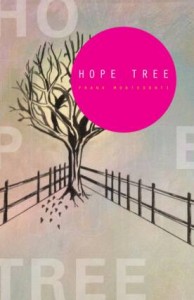 HOPE TREE
HOPE TREE
by Frank Montesonti
Black Lawrence Press, August 2013
90 pages / $9.95 Buy from Black Lawrence Press or Amazon
In HOPE TREE, Frank Montesonti literally prunes How to Prune Fruit Trees by R. Sanford Martin. Accompanied by simple drawings, lovely interpretations from the original sketches, the book is one of erasure.
Literary erasure is not without its critics. Jeannie Vanasco, in “Absent Things As If They Are Present” noted that “in 1820, in the preface to Prometheus Unbound, Shelley called complete poetic originality a ruse: “As to imitation, poetry is a mimetic art. It creates, but it creates by combination and representation.” HOPE TREE does just that. HOPE TREE is a risk, one that the author acknowledges in The Foreward: “I have hesi-/tated / I was aware// I have tried to make/ my instructions simple”
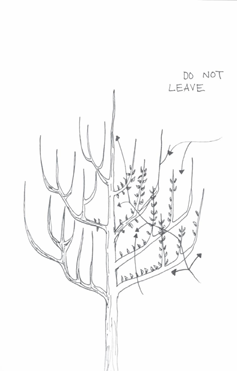
Illustrator: Miranda Polley
HOPE TREE is an espalier of words, both visually and metaphorically. The title, a play on the original, is interesting. HOPE is derived from a portion of the original title, How tO PrunE. Montesonti has tipped his hand. Pruning is initially a brutal activity, but also a hopeful one. When done correctly, the tree thrives, produces more fruit and becomes even more strong and beautiful. If not, the results can be an ugly mess, possibly fatal. It is all about the balance between aesthetics and necessity, a combination of knowledge with a leap of faith.
The same can be said for writing poetry. It is never easy to part with a word or favorite line even when it is abundantly clear that it must be done. As difficult as it is to do with your own words, erasing someone else’s words, while it might seem easy, is a much more complex and difficult task. This is not an exercise in editing. It is an exercise in pruning in the original sense of the word, to cut where the most growth will occur. Montesonti aptly notes “the coarse frameworks / may be very beautiful //as they// choke off the circulation” (32).
October 4th, 2013 / 11:00 am
Artists, Eccentrics, Solitaries, and Saints:
On László Krasznahorkai’s Seiobo There Below
Translated from the German by Michael Hulse
Excerpts from Seiobo There Below translated by Ottilie Mulzet
This article on László Krasznahorkai’s Seiobo There Below, a novel just released from New Directions Publishing, originally appeared in German in Die Zeit on September 2, 2010, and its translation was commissioned and published by Music & Literature Magazine on the occasion of their second issue, devoted entirely to the creative cosmos of Mr. Krasznahorkai. This special issue is available for purchase through their website. You can also read an interview with M&L editor-in-chief Taylor Davis-Van Atta here. Follow the editors of Music & Literature on Twitter at @musiclitmag and @CWTParis.
***
These stories are about the sacred. Their high artistic character is not in question for a single moment: the flow of the sentences, frequently continuing over pages and broken up only by commas, is captivating; the stories’ forceful progression toward the moment when the sacred appears is masterly; the connection of the separate sections by a half-concealed group of motifs and their arrangement into a Fibonacci sequence are irresistible.
As if this achievement were not enough, after two or three stories an unnameable, haunting quality, beyond all the beauty of mere appearance, emerges from the aesthetic pleasures offered by Krasznahorkai’s unusual prose. We sense how the stories challenge us as readers; we begin to argue and debate with them. Are they right, or are we? “They” are the Russian Orthodox monks under the spell of icons, the Japanese Buddhists under the spell of a Buddha statue, the despairing Westerner unexpectedly under the spell of a Renaissance Christ. With Krasznahorkai, something has returned to art that was taken for granted and considered essential by Dostoevsky, and that has since then become more than a little diluted: the question leading toward the truthfulness of life.
Krasznahorkai brings his enlightened, relativist present-day Westerners, alienated to a greater or lesser degree, face-to-face with the absolute demands that the sacred makes of existence. The medium through which the sacred speaks in his work is the sacred art of the past, approached in stories that, by the author’s account, often have an autobiographical basis. Readers who may themselves be indifferent to religion will not find themselves repelled by this book, with its breathtaking diagnosis of the times. For Krasznahorkai is no preacher: the dimension in which he works is one of questing, inquiring, doubting. Any overweening earnestness is undercut with the irony that accompanies his often eccentric seekers on their path. And he evades the greatest danger of all, inflated pathos, with the most surprising of his stratagems: while he writes of art purely as an expression of the sacred, he does so in the unemotional key of a scholarly expert discoursing on the technical aspects of art history. Hence the Russian icons are, on the one hand, windows through which there shines a world beyond this one, and through which we may gain visions of the hereafter, yet, on the other hand, the religious narrative is directly confronted with a strikingly well-informed art-historical essay on the traditions and techniques of icon painting.
The luminous inner view and the profane external perspective of the holy are assigned a particularly convincing opposition in the story “He Rises at Dawn.” It describes the work of mask-carver Ito Ryosuke over a period of almost two months completing a Hannya mask for the Noh play Aoi no Ue. We witness every one of the minute steps in this procedure, in great detail and with atmospheric intensity, from the transfer of the stencil lines onto a piece of hinoki cypress wood until the completion of the masterpiece, which marks “[that] his hands have brought a demon into the world, and that it will do harm.” For his work, the carver withdraws into a wooden box he has made, to have perfect silence and seclusion. And yet it is not altogether certain who exactly is performing the work. For the carver does not think or plan anything; “within him there is no desire for the exquisite”; “his head is as empty as if he had been stunned by something, only his hand knows, the chisel knows why this must happen.” Only his hand—and his eyes. Again and again, he holds the mask-in-progress at arm’s length, comparing it with the stencil and with two photographs inside his work box: “this is the model, the ideal to be sought, this is what he must, in his own way, be equal to.” A time comes when his hand and eyes are no longer equal to the task unaided, and he lends support to his eyes with a “system of mirrors,” tilting and revolving mirrors which he installs around the box.
This gaze is contrasted with the external, intellectualized perspective of Western visitors, who pester the carver with “dreadfully tactless questions.” The Westerners want to know “what is the Noh, and what is the meaning of the hannya-mask, and how can there be ‘something sacred’ from a simple hinoki tree.” To the carver, their interrogation is a confusing tangle of questions, to which he can only stammer the briefest of replies: “…he does not occupy himself with such questions as what is the Noh, and what makes a mask ‘spell-binding,’ he merely occupies himself with doing the very best he can within the limits of his abilities, and with the aid of prayers recited secretly in shrines, he only knows movements, methods of work, chiseling, carving, polishing, that is to say, the method, the entire practical order of operations of tradition, but not the so-called ‘big questions.’”
In this way, the story reflects a certain polarity of East and West, at once steeped in the ethnographic nature of a craft and at the same time religious. The hand and its unconscious actions appear in opposition to the head and its questions about meaning; we find here the contrast of intellectual reflection and the external reflection from the system of mirrors. Indeed, most of these stories revolve around fundamental issues in philosophy. One of Krasznahorkai’s protagonists, at loose ends, attempts by a superhuman effort of the will to see the Acropolis on a hot summer’s day. But he sees nothing at all, blinded by the glaring sunlight and his own sweat, and at the end of the story he decides to return to a group of Athenian friends who have renounced all strivings of willpower and individual endeavor and simply do nothing all day.
The key philosophical motifs in these stories are of being overwhelmed, beaten down. Of one character’s response to an angel in an icon we read: “almost immediately at the sight he collapsed.” Of Baroque music: “it subdues one, breaks one’s heart to bits, knocks one to the ground.” A visitor to the Alhambra is “is so stunned by the beauty, by this beauty that is so, but so unbelievably beautiful that he thinks he is struck by vertigo,” where “a truth never before manifested reveals itself.” And a museum attendant who has been devoting his entire attention for decades to the Venus de Milo is “mesmerized,” “feet rooted to the ground.”
Krasznahorkai does not shy away from superlatives when he aims to convey the presence of the “celestial realm.” But, despite the philosophical appurtenances and the essayistic appearance, these stories are not sicklied o’er with the pale cast of thought. For the concepts and superlatives are no more than buoys bobbing on the mighty current of Krasznahorkai’s prose. This musical river of language is the true event of this book, and is overpowering in itself. The current lifts up the reader, drags him down, catches him in whirlpools, is caught still, races across rapids, and with all of these qualities generates an experience that bars us from any distanced reading of the stories but forces us to live at the most intense pitch. It is impossible not to identify with these lonely, despairing, tired-of-life or just plain eccentric characters led by Krasznahorkai toward their moment of truth. We are drawn so close to them that it continually astonishes us when we realize that the stories are told not in the first but in the third person.
Of course, what we see here is yet one more balancing act by the great storyteller, László Krasznahorkai: just as he can be essayistic without slipping into didacticism, and emotional without turning bathetic, so too he remains wary of assigning the central position to his solitary and despairing characters, reserving that place to the current that tears everything with it—in one moment narrative, in the next meditative and interpretative—to the current of his prose.
***
Andreas Isenschmid has been editorial director at Schweizer Rundfunk, head of Literaturchef der Weltwoche, literary editor at the Tage-Anzeiger, among other distinctions. He now writes for the Hamburg ZEIT and is a critic on the program Kulturzeit.
A Review of Jurassic Park
October 2nd, 2013 / 11:00 am
Big Lucks Books Wants Your Book

Where were you when that journal Big Lucks announced that they were going to start publishing books? If you were on the Internet, you probably saw this news received to tears of great joy and unprecedented numbers of Facebook shares. That was fun. 2014 will bring books by Mathias Svalina, Carrie Murphy, Sasha Fletcher, Mike Young, and Mike Krutel. Nice list!
What’s more, starting today and going until the end of November, Big Lucks Books is reading manuscripts. They’re using Submittable, and according to the call for submissions, here’s what they’re looking for:
We want to read your novels, stories, poems, memoirs, and essays. We want completed works only: no excerpts, proposals, or elevator pitches. We want fizz. We want earnest. We want heartbreaking. We want innovation. We want provocation. We want our paradigms shifted. We want you to fuck us up.

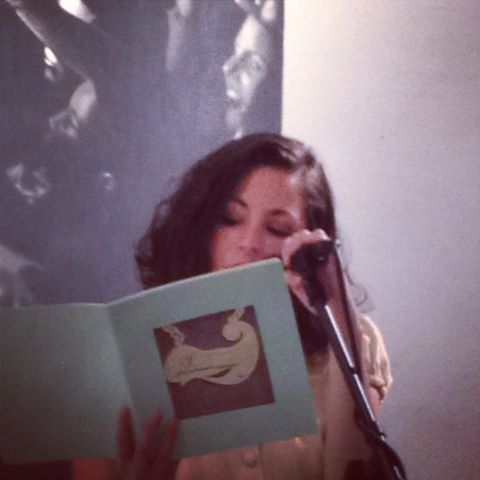
 Y’all y’all y’all what if they made pumpkin spice American Spirits, I would shut down my self-governance, I would sit inside buying raffle tickets, like buying a million, and winning all the books. All the books? You can win the books. That’s real.
Y’all y’all y’all what if they made pumpkin spice American Spirits, I would shut down my self-governance, I would sit inside buying raffle tickets, like buying a million, and winning all the books. All the books? You can win the books. That’s real. Jurassic Park
Jurassic Park